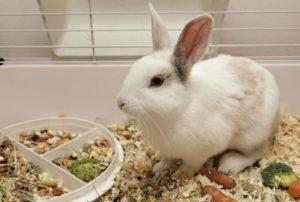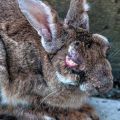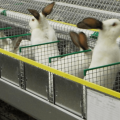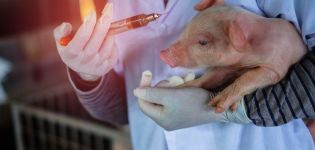Instructions for the associated vaccine for rabbits and how to vaccinate
The associated, or single-component, vaccine for rabbits against MKM and HBV is a drug that allows you to prevent outbreaks of dangerous diseases. It is impossible to protect animals from infections and viruses. Even insects can infect rabbits. Having received the vaccine, animals immediately acquire resistance to a particular virus. Vaccination is carried out no more than once every six months.
Why do they do myxomatosis?
A disease such as myxomatosis is viral, and can lead to the death of not one rabbit, but the entire livestock. The mortality rate is over 70 percent. Diseased animals can be cured by starting the fight against the virus at an early stage. It is best to prevent the development of the disease and get vaccinated. There is no other method to escape the virus.
A dangerous pathogen is transmitted by blood-sucking insects, as well as through rodent-infected food or grass. Outbreaks of diseases are recorded in the spring-summer period. A sick animal has purulent exudate from the eyes and tearing, and red bumps and nodules form on the head and ears. The meat of an infected animal is impossible to eat, it is speckled with neoplasms that cause disgust.
The only salvation from myxomatosis is mandatory vaccination. Thanks to the vaccination, the rabbit develops a stable immunity to the virus, which lasts for a long time. Only healthy animals are vaccinated, the sick are treated or sent to slaughter.
Important! After vaccination, rabbits will not get myxomatosis even if they become infected, or they will suffer the disease without complications. Immunity to the virus is formed within 3-7 days after vaccination. In the first weeks after the injection, domestic rabbits will get sick with a mild form of myxomatosis.
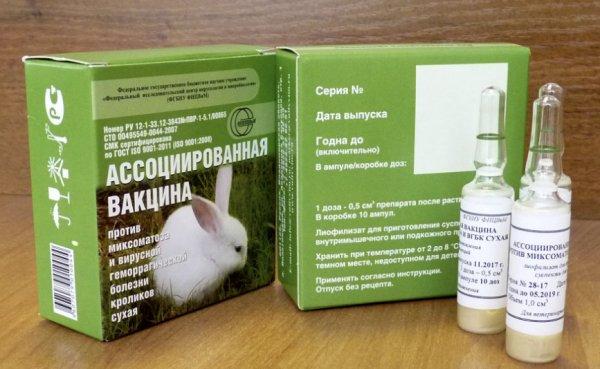
How old is it?
The recommended period for vaccination is 28-45 days from the date of birth. Animals are usually vaccinated in the spring. You can give the injection yourself or take the rabbits to the veterinary hospital. Pay attention to the weight of the pet. Rabbits are vaccinated with more than 500 grams of live weight.
Vaccination frequency
Rabbits are usually vaccinated against two dangerous diseases: myxomatosis (MCM) and viral hemorrhagic disease (VGBD). Vaccinations against different strains are done alternately or simultaneously. Accordingly, there are monovaccines (from one virus) and associated (from MKM + VGBV).
Associated vaccination scheme:
- for the first time - at 45 days;
- repeat - after 2-3 months;
- revaccination - every 5-6 months and until the end of life.
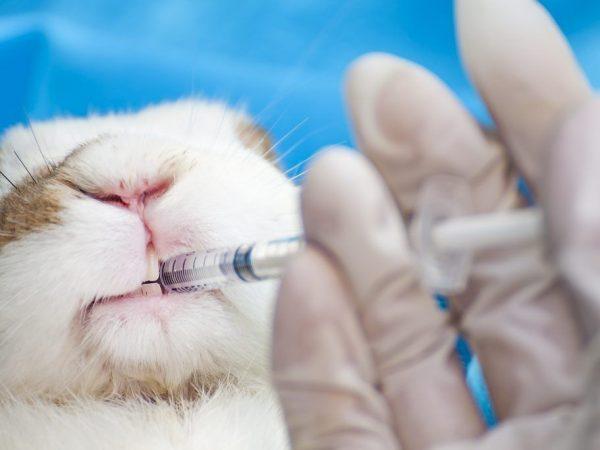
Monovaccination scheme:
- at 28-45 days, the first vaccination against HBV is given;
- after 14 days - vaccination against myxomatosis;
- after another 14 days - fixing the vaccination against VGBK;
- after another 14 days - fixing the vaccination against myxomatosis.
Repeat the fractional vaccination scheme - in 2-3 months. Revaccination with monovaccine - every 6 months (according to the scheme 14 through 14). You should always start with the HBV vaccine, as it is a more dangerous disease.
Important! If there is no epidemic outbreak in the rabbits' habitat, then the associated vaccination is carried out once. The weight of the animal must be at least 0.5 kilograms.
Varieties of vaccines
There are three types of vaccines: single-component, complex and associated. There are different opinions about which one is better. Usually they buy the vaccine that is available at the pharmacy. Preparations for vaccination must be kept in the refrigerator at a temperature of + 2 ... + 4 degrees.
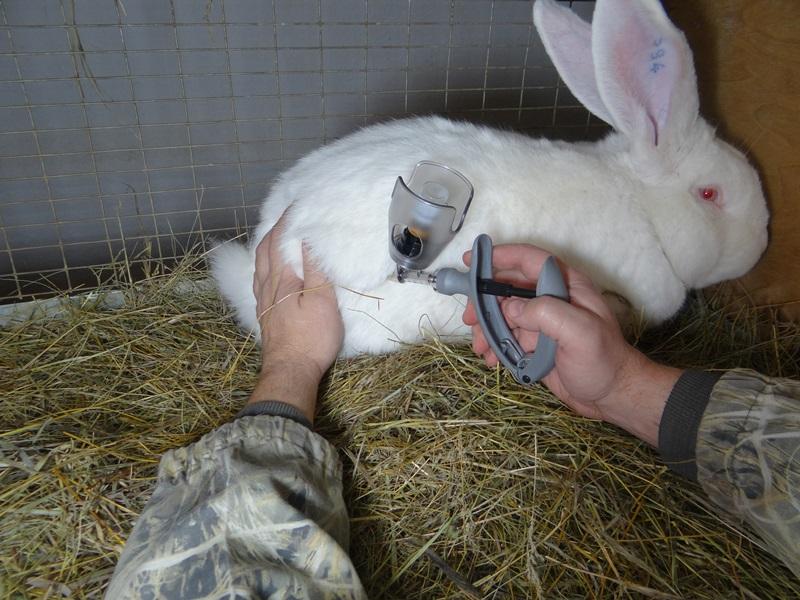
Types of vaccines:
- one-component from viral hemorrhagic disease;
- one-component for myxomatosis;
- associated (from VGBK + MKM);
- complex (from VGBK and MKM).
Associated is made from strains of two viruses. The preparation itself is a porous dry substance. The light brown powder is in small glass ampoules or bottles of different capacities. For vaccination, you also need to purchase a solvent (sodium chloride solution or water for injection), disposable syringes, cotton wool and alcohol for disinfection. One ampoule or bottle is enough to inoculate several individuals. The drug is called: Vaccine associated with HBV + MKM.
Monovaccine for myxomatosis is also a dry powder, which is sold in ampoules or vials. The substance is diluted with a solvent before giving the animal an injection. Types of drugs: Mixomatosis Pokrov, Lapimun against myxomatosis.
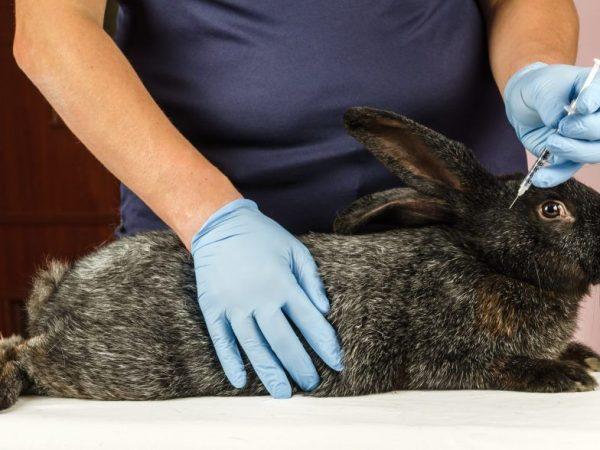
Monovaccine from VGBV is a colorless suspension, ready to use. Common types: VGBK Pokrov, Lapimun against rabbit hemorrhagic disease, Pestorin. A complex vaccine is a package that contains single-component drugs for MKM and HBV. One box contains two ampoules with vaccines for two different diseases.
Vaccination with each agent is carried out alternately or simultaneously (depending on the type and instructions). Mixing different drugs is prohibited.
Vaccination rules yourself
How to properly vaccinate is written in the instructions for use for each vaccine. The fact is that the drugs have different packaging and different shapes. There is no universal instruction. Vaccination is done in three ways: subcutaneously, intradermally, intramuscularly. The injection site must be disinfected with an alcohol solution. The vaccine is administered with a sterile disposable syringe. For each method and drug, its own dosage has been developed. True, there are several general rules that it is advisable to remember before daring to vaccinate yourself (without the help of a doctor).
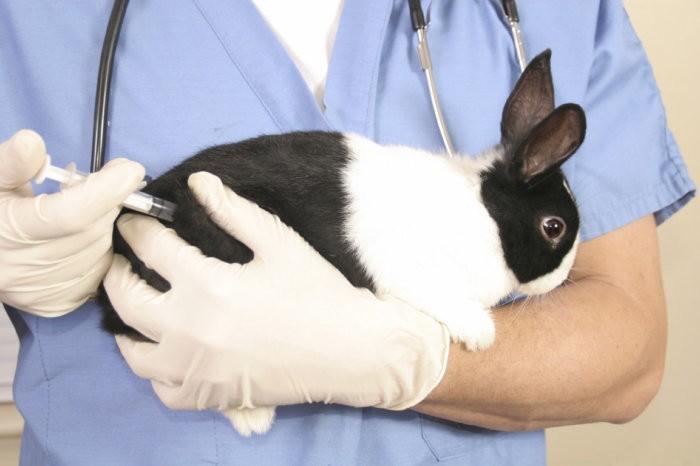
How to vaccinate domestic rabbits:
- vaccinate exclusively healthy animals;
- the body temperature of the rabbit should be 38.5-39.5 degrees;
- before vaccination, carry out antiparasitic measures;
- vaccination is prohibited in the heat (above +28 degrees);
- 10 days before vaccination, coccidiostatics are added to the feed;
- the vaccine, which is a dry powder, is dissolved in a solvent;
- vaccine - liquid suspension - ready for use;
- one small ampoule usually contains at least 10 doses (the contents are enough for several rabbits);
- the dosage of the dissolved preparation for 1 animal is 0.2 ... 0.5 ml (depending on the type of vaccine and the method of inoculation);
- dosage of a completely finished preparation for 1 rabbit - 0.5 ... 1.0 ml (depending on the type of preparation and the injection site);
- inoculation is done intramuscularly or subcutaneously in the thigh area;
- intradermal injection is injected into the ear or under the tail.
The easiest way is to call a veterinarian to your home or take the rabbit to the clinic. If this is not possible, you can inject the animal yourself. Vaccines are bought at the pharmacy. In the same place or at the veterinary clinic, you can ask how to vaccinate your pet yourself.
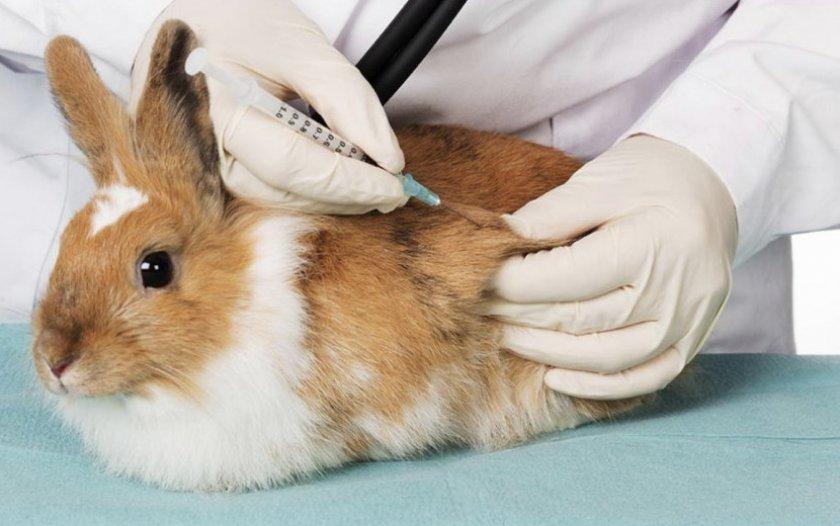
Contraindications and side effects
Before getting vaccinated, you need to remember that a vaccine is not a cure for a disease, but a means of preventing it. The condition of the animal may deteriorate for some time, so only healthy rabbits are vaccinated.
Monovaccines are stronger than associated drugs. It is recommended to introduce single-component drugs for different strains in stages. Drugs are contraindicated to mix with each other. Deworming of animals is carried out 2 weeks before and 2 weeks after vaccination.
There are a few things to keep in mind. First of all, it is recommended to pay attention to the quality of the vaccine. It is prohibited to buy drugs in the markets. After all, the vaccine must be constantly stored in the refrigerator and even transported in a thermocontainer. In order to avoid unpleasant surprises, it is advisable to carefully consider the ampoule before buying. Pay attention to the expiration date, the integrity of the packaging and the condition of the powder (no mold). It is recommended to store the purchased vaccine at home in the refrigerator. The dry powder is diluted only before the injection.
There are a number of rules that are recommended to be followed after vaccination. Vaccinated animals need special care and feeding. The quarantine should last 14 days after vaccination.
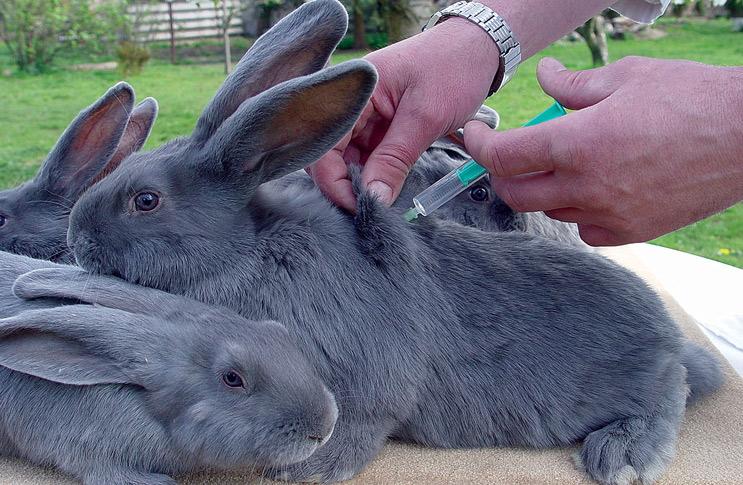
How to care for rabbits after vaccination:
- do not bathe;
- ensure normal temperature conditions;
- do not change feed, but add vitamin supplements;
- do not move animals;
- do not carry out treatment for parasites.
Important! Usually, one bottle of the drug is enough to vaccinate several animals. An open ampoule is stored in the refrigerator, but not more than 7 days.
Can pregnant rabbits be done?
Many domestic associated vaccines can even be administered to pregnant animals. Most of these drugs are completely safe. Typically, vaccine manufacturers indicate in the instructions whether pregnant rabbits can be vaccinated or not. It is advisable to carefully study the recommendations before the injection.
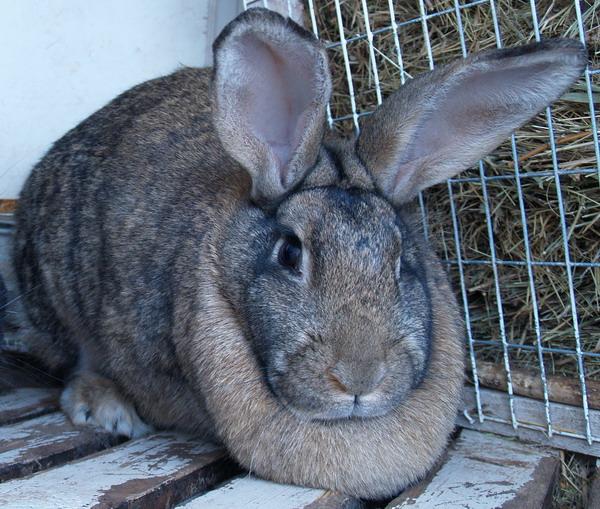
It is best to be vaccinated first, and after 3 weeks to mate. In this case, one hundred percent healthy offspring will be born with an already developed immunity to the virus.
Does vaccination always help?
Veterinarians do not guarantee that vaccination will save rabbits 100 percent from viruses. Sometimes even the vaccine itself can cause illness. True, this only happens with weak and thin rabbits. Most vaccines do not pose a threat to animal health. However, everything depends not so much on the drug as on the reaction of the rabbit's body to the vaccine. The vaccine is worst tolerated by old animals affected by helminths.
Rabbits are vaccinated with monovalent and bivalent drugs. One-way vaccines are more potent. Sometimes such drugs can cause deterioration in animal health. Vaccination with a single vaccine is recommended only for young and healthy rabbits.
Associated vaccines are more gentle. The animal receives a smaller dose of each strain. Such vaccinations are recommended for old or pregnant rabbits. The likelihood of complications or illness is minimal.

